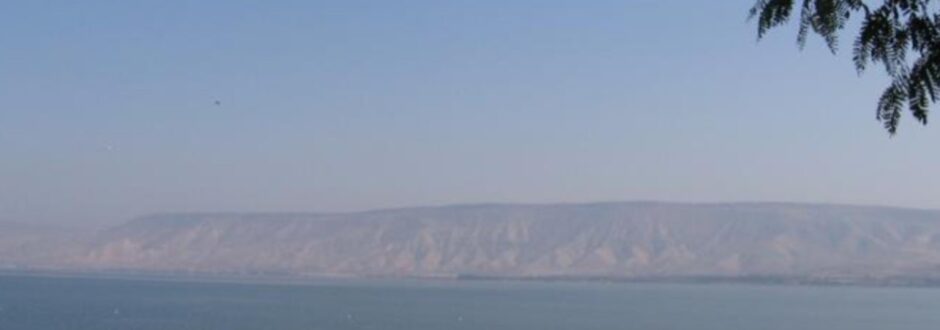In witnessing a random act of kindness, I caught a glimpse of the resurrection, a glimpse of the presence of God’s reign in our human reality, writes Congregational Leader Sister Catherine McCahill.
I looked at the space between the two women occupying opposite ends of the bench seat on the bus. Inaudible verbal communication between them seemed to indicate that they were companions, and I did not want to separate them.
They motioned for me to sit. Then the younger one dug deep into her bag, withdrew a nylon reusable bag and, excusing herself to me, passed it to the older one who was holding a torn paper shopping bag. Its contents were transferred into the gifted bag. Two stops later the younger woman left the bus.
I realised then, that I had not witnessed an interaction between companions or family members but a random act of kindness. One woman had seen and acted on the problem of another. She gave her own bag to remedy the problem. As such, it was not an expensive gift. But it was a gift that mattered, a gift given freely without any expectation of return. The giver and the receiver remained nameless.
I wondered would I have been as generous if I had first noticed the torn paper bag? After all, I carry a spare nylon bag in my own handbag. Would I have pulled it out and given it to a stranger?
This brief cameo of life on the bus stayed with me as I journeyed towards the celebration of Easter, of journeying with the Christian community as we commemorated and made present yet again, the life, death, and resurrection of Jesus.
As I stood listening to the Scripture readings on Good Friday, I wondered about the women, men and children in Jerusalem today. Abbot Nikodemus Schnabel of Dormition Abbey in Jerusalem’s Old City is quoted in a recent report: “We are surrounded by an ocean of sorrow”. The poignancy of his words is haunting.
Accounts of hostages, atrocities and deprivations pour forth daily from the people of Israel and Gaza. The scale of the horror could overwhelm us, or we could ignore it.
For Christians praying and reflecting on the death and resurrection of Jesus this Easter, this suffering is the context of our prayer. We ask again, how do we speak of resurrection where there is such loss and such little hope?
The Holy Week edition of The Tablet includes excerpts from the reports and diary of George Antone, a Caritas Aid worker sheltering with his wife and three daughters in the only Catholic Church compound in Gaza.
His words give a glimpse of the brutality and frugality of the people taking shelter, but at the same time, I notice his undying hope in the midst of the questions and struggle.
October 2023: We are scared to death … we are in Jesus’ house; we are in his hands. We choose life, despite being surrounded by death.
November 2023: Life has become incredibly challenging and harsh. … We feel like we’ve died while still alive.
February 2024: The struggle to secure our daily bread is exhaustive.
March 2024: We strive hard to protect our children … All we have is to tell them we love them above all else.
The idea of leaving, of emigration, crosses the minds of many Christians. We are determined to preserve the Christian presence in Palestine. This is our homeland. … If we go, who will show Jesus to the people of Gaza?
On the empty, quiet day of Holy Saturday, I think of George, his wife and children. I think also of the hundreds of thousands of others – Christians, Muslims, Jews – in Gaza and Israel. I recall the words of Jon Sobrino SJ from San Salvador: “No one hopes in the resurrection like the crucified.”
On Holy Saturday night, in Mark’s Gospel I hear again the words of the young man to the women at the empty tomb: “Do not be alarmed; you are looking for Jesus of Nazareth, who was crucified. He has been raised; he is not here. Look, here is the place they laid him. But go, tell his disciples and Peter that he is going ahead of you to Galilee; there you will see him.”
These women who have stood at the foot of the cross, and who have seen the dead Jesus hastily buried, now look at this empty space. It is not yet a space of joy, but unsettling. They are afraid, fleeing in terror. But they go to Galilee to tell the others, to discover the meaning of this senseless tragedy.
Why Galilee, we might wonder. For me, the invitation or command to Galilee is an invitation to live the life of Jesus in my own life. The journey begins all over again. Some of us will find ourselves, like those in Gaza and Israel, with Jesus on the cross; others will know the joy of companionship with the Risen One; while others will know the dailyness of the journey with all its twists and turns.
In all our lives there will be moments of crucifixion or of standing at the foot of the cross, moments of looking deeply at the place of suffering, and moments of hurrying towards the resurrection.
So, I return to that moment on the bus, the moment of witnessing a random act of kindness. For me, such a moment is a glimpse of the resurrection, a glimpse of the presence of God’s reign in our human reality.
Here is the challenge for me: an invitation to acts of kindness for my neighbour. Whenever or wherever I am kind, I make known the presence of the Risen Jesus. The reverse becomes a missed opportunity. Whenever and wherever I notice a random act of kindness, I know the love of my saving God.
Knowing the Risen One is as simple and as challenging as this.
